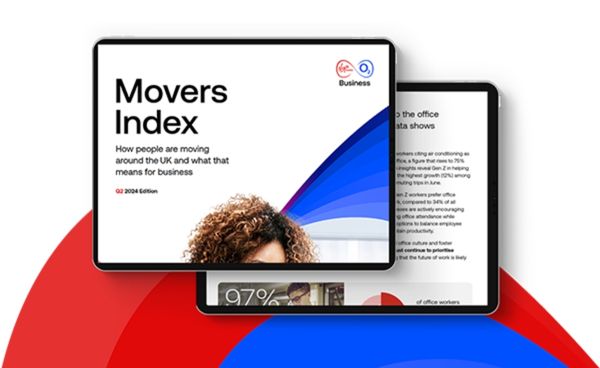Insights
Virgin Media O2 Business Future of Work study: predictions from futurist Tracey Follows
4 minutes
05th December 2023
Share this article:
Based on findings from our Future of Work study, professional futurist Tracey Follows, one of the top 50 female futurists in the world, believes that as we look to the future of work, emerging technologies will augment current roles and create new sectors.
Here are some of her top predictions and what they mean for you.
By 2040, most traditional salaries will no longer exist
By 2040 we will find that traditional paid salaries have been replaced by, or supplemented with, more innovative payment models moving beyond fiat currency (a government-issued currency e.g. GBP).
Employees will be able to choose how they are paid, driven by their own politics and ethics, their purposeful life plan, their social and environmental values and their desires around work-life balance.
For example, widespread adoption of cryptocurrencies and blockchain payroll will enable less centralised payment methods allowing for faster, secure payments. This will enable payments to be made on a daily or even hourly basis.
With AI on hand, employees and employers can offer dynamic bonuses for a task well done. Dynamic micro payments will replace commission as we see deskless workers receiving algorithm-alerted, real-time bonuses for safety performance, customer assistance or creative problem solving in real-time situations.
Some employees will opt to forgo a proportion of their payments in exchange for governance tokens. For those who would rather have a say in the direction of their own department, or the governance of the business, they will forgo cash for more control.
Within 20 years deskless workers will have intelligent uniforms
Connected clothing is likely to become built-in to uniforms for deskless workers, with the majority of deskless workers wearing connected clothing rather than holding connected devices. This means that materials can respond to environmental conditions for example, temperature, air quality, even noise.
It will be expected that deskless workers in hospitality or food and drink, or anywhere where environmental conditions can affect the product quality or the customer experience, utilise smart clothing as an extension to their own abilities and judgments.
We may find that even further into the future, intelligent uniforms can alter and analyse an individual customer, informing the worker of that customer’s preferences, any loyalty schemes they have, and in particular any dietary issues or allergies.
This real-time information will help the employee anticipate their needs and avoid any issues with service, guaranteeing a favourable recommendation and positive review.
Within 10 years, 10% of deskless industrial roles will be part of the safety sector
Many of the current warehousing and logistics roles that exist today will be replaced by AI, using software management and traffic systems analysis to co-ordinate and ship goods. Many workers currently carrying out roles in warehousing and logistics will see these roles shifting to AI and will then themselves transition towards safety maintenance roles.
Safety is becoming a job sector in itself and will in the future involve a lot of training and communication around the operationalisation of technology in human-centred, deskless working environments. Both safety and security as a combined sector will come to include the building of resilience and mastery of emotional skills for personal safety.
5-10% of jobs in industries such as manufacturing, healthcare, retail, and transport are likely to be transitioned to bespoke professional safety, mental health safety and regulatory training roles. Safety and safety training jobs will not only be expected to grow in number but also in complexity and importance in a rapidly changing world.
Much of this will be done in immersive virtual and augmented reality training environments - purpose-built 3D spaces where digital technologies alter the environment and create any simulated environment possible. This could be a nightclub, or a factory warehouse or medical centre or a hotel kitchen.
Workers will be able to use emerging technology to monitor themselves to help improve their performance against the goals they have set for themselves. Furthermore, peers will be able to observe and learn from real-life cases, maybe even in real-time.
Whilst much of this will become automated there are always safety issues as well as security issues in any physical space, and this will always require a professionally trained and accredited human in the loop.
Within 10 years the majority of workers will have an AI coach, and by 2040 in developed regions, over half of workers will be using AI agents in some capacity
Integrating AI into learning pathways will allow employees to input their goals, mission and purpose and use the AI to keep them on their path to purpose. This system would be not merely a reflection of their organisations’ purpose and goals but their own individual heartfelt passion to achieve a particular purpose in their life through work.
In this way, the AI will continuously monitor and assess their performance against their life-work purpose and suggest any blindspots or areas that need attention, help improve any weaknesses in their skills-sets and build on their inherent talents and traits so they can fulfil their purpose in a way that is personalised to them.
This would be equally accessible to desk workers and deskless workers but may be of particular benefit to the latter because they may feel less connected to leadership in Head Office. This re-establishes that connection and allows head office/desk workers to better understand and nurture deskless workers’ ambitions.
Want to speak to one of the team?
call 0800 064 3790

